第23章
Nor was the lake adjoining to the mountains of the Solvmi at all large or broad, in comparison of the Jewish lake Asphaltitis; nor indeed were these so considerable a people as the Jews, nor so likely to be desired by Xerxes for his army as the Jews, to whom he was always very favorable. As for the rest of Cherilus's description, that "their heads were sooty; that they had round rasures on their heads; that their heads and faces were like nasty horse-heads, which had been hardened in the smoke;" these awkward characters probably fitted the Solymi of Pisidi no better than they did the Jews in Judea. And indeed this reproachful language, here given these people, is to me a strong indication that they were the poor despicable Jews, and not the Pisidian Solymi celebrated in Homer, whom Cherilus here describes; nor are we to expect that either Cherilus or Hecateus, or any other pagan writers cited by Josephus and Eusebius, made no mistakes in the Jewish history. If by comparing their testimonies with the more authentic records of that nation we find them for the main to confirm the same, as we almost always do, we ought to be satisfied, and not expect that they ever had an exact knowledge of all the circumstances of the Jewish affairs, which indeed it was almost always impossible for them to have. See sect. 23.
(17) This Hezekiah, who is here called a high priest, is not named in Josephus's catalogue; the real high priest at that time being rather Onias, as Archbishop Usher supposes. However, Josephus often uses the word high priests in the plural number, as living many at the same time. See the note on Antiq. B. XX.
ch. 8. sect. 8.
(18) So I read the text with Havercamp, though the place be difficult.
(19) This number of arourae or Egyptian acres, 3,000,000, each aroura containing a square of 100 Egyptian cubits, (being about three quarters of an English acre, and just twice the area of the court of the Jewish tabernacle,) as contained in the country of Judea, will be about one third of the entire number of arourae in the whole land of Judea, supposing it 160 measured miles long and 70 such miles broad; which estimation, for the fruitful parts of it, as perhaps here in Hecateus, is not therefore very wide from the truth. The fifty furlongs in compass for the city Jerusalem presently are not very wide from the truth also, as Josephus himself describes it, who, Of the War, B. V. ch. 4. sect. 3.
makes its wall thirty-three furlongs, besides the suburbs and gardens; nay, he says, B. V. ch. 12. sect. 2, that Titus's wall about it at some small distance, after the gardens and suburbs were destroyed, was not less than thirty-nine furlongs. Nor perhaps were its constant inhabitants, in the days of Hecateus, many more than these 120,000, because room was always to be left for vastly greater numbers which came up at the three great festivals; to say nothing of the probable increase in their number between the days of Hecateus and Josephus, which was at least three hundred years. But see a more authentic account of some of these measures in my Description of the Jewish Temples.
However, we are not to expect that such heathens as Cherilus or Hecateus, or the rest that are cited by Josephus and Eusebius, could avoid making many mistakes in the Jewish history, while yet they strongly confirm the same history in the general, and are most valuable attestations to those more authentic accounts we have in the Scriptures and Josephus concerning them.
(20) A glorious testimony this of the observation of the sabbath by the Jews. See Antiq. B. XVI. ch. 2. sect. 4, and ch. 6. sect.
2; the Life, sect. 54; and War, B. IV. ch. 9. sect. 12.
(21) Not their law, but the superstitious interpretation of their leaders which neither the Maccabees nor our blessed Savior did ever approve of.
(22) In reading this and the remaining sections of this book, and some parts of the next, one may easily perceive that our usually cool and candid author, Josephus, was too highly offended with the impudent calumnies of Manethe, and the other bitter enemies of the Jews, with whom he had now to deal, and was thereby betrayed into a greater heat and passion than ordinary, and that by consequence he does not hear reason with his usual fairness and impartiality; he seems to depart sometimes from the brevity and sincerity of a faithful historian, which is his grand character, and indulges the prolixity and colors of a pleader and a disputant: accordingly, I confess, I always read these sections with less pleasure than I do the rest of his writings, though Ifully believe the reproaches cast on the Jews, which he here endeavors to confute and expose, were wholly groundless and unreasonable.
(23) This is a very valuable testimony of Manetho, that the laws of Osarsiph, or Moses, were not made in compliance with, but in opposition to, the customs of the Egyptians. See the note on Antiq. B. III. ch. 8. sect. 9.
(24) By way of irony, I suppose.
(25) Here we see that Josephus esteemed a generation between Joseph and Moses to be about forty-two or forty-three years;which, if taken between the earlier children, well agrees with the duration of human life in those ages. See Antheat. Rec. Part II. pages 966, 1019, 1020.
(26) That is the meaning of Hierosyla in Greek, not in Hebrew.